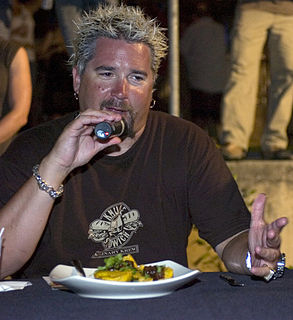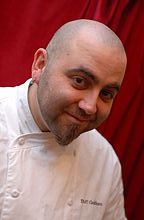A Quote by Robert Kenner
Industrial food makers don't want you thinking about where your food comes from and what's in it.
Related Quotes
Isn't food important? Why not "universal food coverage"? If politicians and employers had guaranteed us "free" food 50 years ago, today Democrats would be wailing about the "food crisis" in America, and you'd be on the phone with your food care provider arguing about whether or not a Reuben sandwich with fries was covered under your plan.
If you're from Philly and you're listening to this, please know that the rest of the world looks at Philly and they're jealous of your food. I promise. And if you're not from Philly, and you've never been here and you're thinking about coming somewhere to the East Coast, come to Philly and eat the food because the food. Is. Amazing.
If there was ever a food that had politics behind it, it is soul food. Soul food became a symbol of the black power movement in the late 1960s. Chef Marcus Samuelsson, with his soul food restaurant Red Rooster in Harlem, is very clear about what soul food represents. It is a food of memory, a food of labor.
Any guilt about food, shame about the body, or judgment about health are considered stressors by the brain and are immediately transduced into their electrochemical equivalents in the body. You could eat the healthiest meal on the planet, but if you’re thinking toxic thoughts the digestion of your food goes down and your fat storage metabolism can go up. Likewise, you could be eating a nutritionally challenged meal, but if your head and heart are in the right place, the nutritive power of your food will be increased.



































